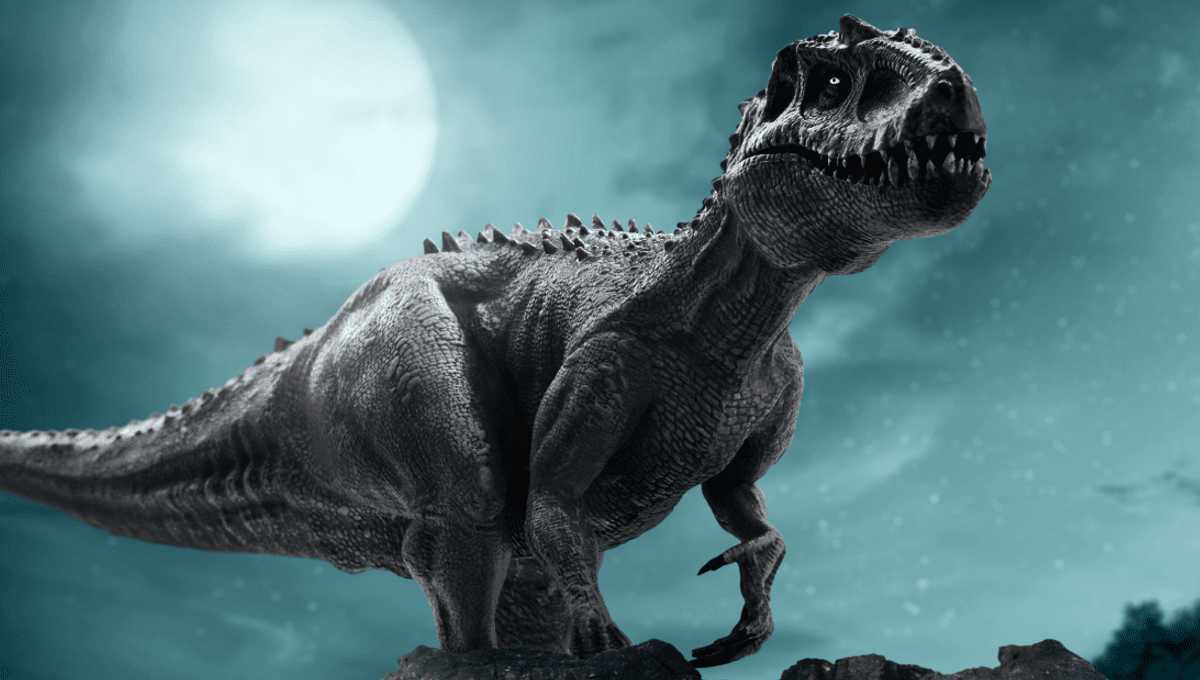
The age of stupid dinosaurs is over, according to new research that claims that theropods like the “tyrant lizard” Tyrannosaurus rex actually had the same number of brain neurons as modern primates. By comparing the brains of these animals to modern birds, the study mathematically calculated how many neurons could feasibly be stuffed inside theropod brains and the results point to them being capable of problem-solving, tool use, and even culture. So much for that dumb reptilian brain.
Soft tissues are pretty hard to come by when dealing with prehistoric remains, so how can scientists assess organs like the brain in an animal that’s preserved in the fossil record? Neuroscientist and study author Suzana Herculano-Houzel decided to turn to the dinosaurs that are still alive today for insights: modern birds.
In recent years we’ve learned that the old “bird brain” insult isn’t really valid, as modern birds have densely packed neurons that mean even though their brains are tiny, they are actually quite cognitively capable. Given that they are descendants of dinosaurs, it figures that you can look for shared traits through something known as phylogenetic bracketing, which uses the evolutionary tree to infer the likelihood of unknown traits in extinct organisms.
If we follow this school of thought, then it would be possible to hypothesize how many neurons a bird like an emu has and then scale up the size of brain and number of neurons to fit the skull cavity of a behemoth like T. rex. But, as Herculano-Houzel explained in a video shared to Twitter, this involves assuming proportionality.
“First, you have to have good reason to believe that the same proportionality that applies to birds already applied to dinosaurs like T. rex, which is what I just did.”
In her paper, Herculano-Houzel explains how the key to making sensible assumptions about proportionality hinges on considering dinosaurs as separate groups. It was once the case that disparate groups like sauropods and theropods were all lumped together, but as time has rolled on and discoveries have been made, it’s becoming increasingly clear that there are few rules that can be applied to The Dinosaurs as a whole.
When Herculano-Houzel looked at theropods, however, it became clear that these animals had similar brain sizes to those you might expect to find in a bird of the same magnitude. As such, she states it becomes reasonable to expect the same scaling rules apply to T. rex as do to today’s emus and ostriches.
Using math, Herculano-Houzel could then estimate how many neurons theropods like T. rex had, which turned out to be similar to that of modern primates. This implies that they weren’t stupid, and may have lived to be around 40 years old as Herculano-Houzel’s previous research has found that neuron number is associated with life history.
Living for decades with billions of neurons could therefore have given these animals the time and thinking power to solve problems, use tools, and even have culture. The theory would certainly be in keeping with the recent makeover T. rex got in Apple TV+’s Prehistoric Planet, which showed their gentler side as a male and female engaged in a touching mating display.
Herculano-Houzel’s estimations put T. rex in line with the brain capacity of baboons, only they were massive with giant, skull-crushing teeth. Wouldn’t that make for quite the Jurassic Park update?
“I have a whole newfound respect for dinosaurs,” Herculano-Houzel concluded. “Also: you can be thankful for that asteroid now – or life would be much different, maybe presided over these days by T-rexes that had figured out how to cook their food and afford as many neurons as we humans now have.”
“Yeah, that’s a movie I would like to watch.”
The study was published in The Journal Of Comparative Neurology.
Source Link: T. Rex May Have Been Intimidatingly Clever With Baboon-Like Brain Capacity